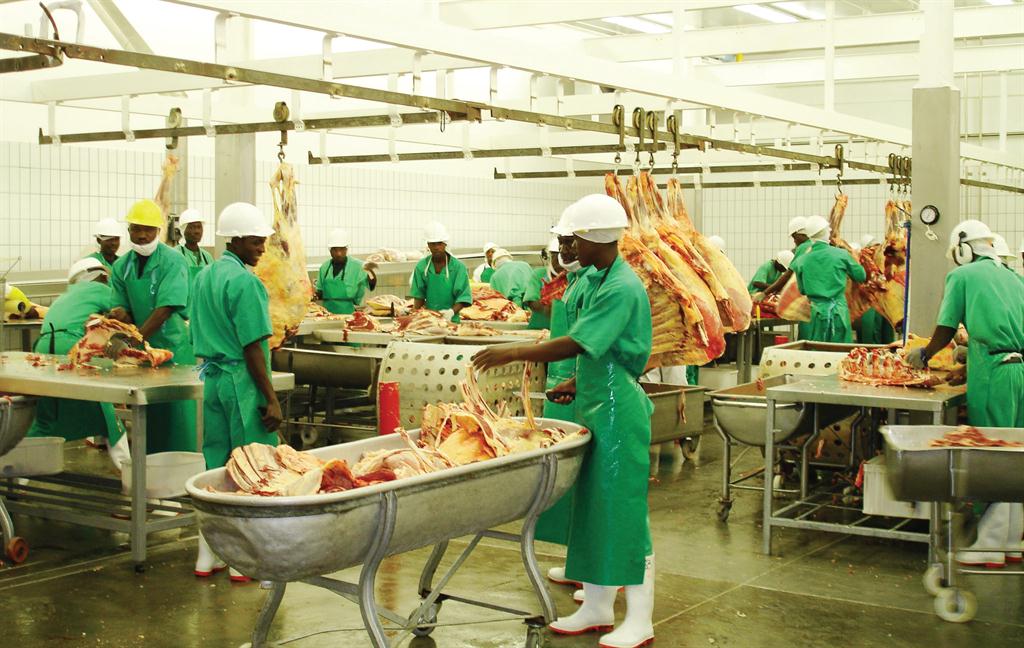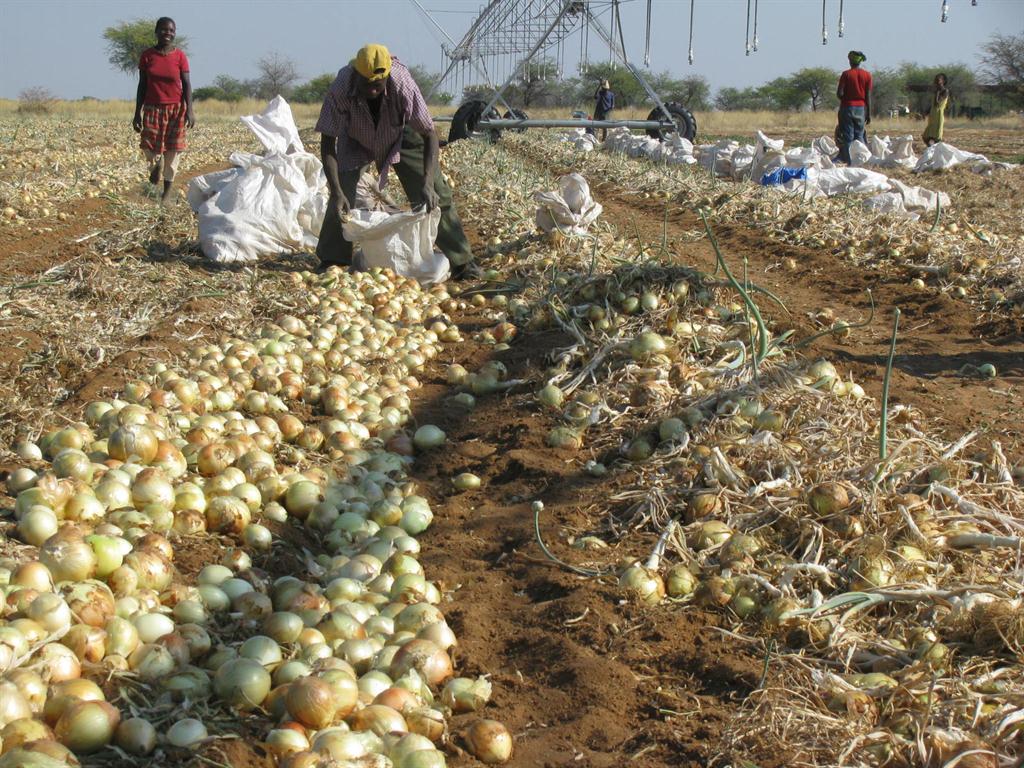Value-addition the way to go
Agriculture minister John Mutorwa has urged producers to sell their products locally, both meat and agronomic farmers.
The growth at home strategy is one of the major challenges the agronomic and meat industry are still faced with as Namibia is still not a country that consumes what it produces.
This is according to the agriculture minister John Mutorwa who said that Namibia is still facing a problem within both sectors regarding government's strategy of consuming what you produce.
Mutorwa said real meaning should be given to this strategy and Namibia should become known as a country that produces what it consumes and not a country where the contrary applies.
He also said in especially small towns, women can be seen working and producing on the fields and therefore a programme is needed for these people to get their produce into the market and to the mainstream consumer.
Mutorwa made these remarks at the announcement of the new Namibia Agronomic Board (NAB).
He further elaborated about the restriction of importation and the export of controlled products.
“When there is a good harvest within the country we need to make sure that grain is bought by local millers and the government before we import.”
According to him, despite the drought that Namibia experienced over the last few years, good rains have been experienced over several parts of the country since last year.
“Farmers and producers have taken advantage of these conditions and produced good harvests for this year.”
Mutorwa specifically mentioned that he paid a working visit to the Zambezi Region last week where he was briefed about the bumper maize harvest produced in that region.
He said that maize must be bought by both the country's millers and the government's Agricultural Marketing and Trade Agency (AMTA) to fill the government's national strategic food reserves (silos) with grain from both the government's green scheme irrigation projects as well as from individual farmers who wish to sell to AMTA.
Furthermore, Mutorwa advised the board revise the Agronomic Industry Act.
According to him the act was gazetted and signed into law in 1992 and for all intents and practical purposes, it is 25 years old.
“It is a good law and it has assisted us for 25 years, but it needs to respond to realities and changes. The board needs to study the law and look at the dynamics and see whether amendments are needed.”
These amendments should strengthen both the existing law and its regulations.
According to Mutorwa these would be in addition to amendments made four years ago particularly when dealing with the clear delineation of NAB, AMTA and Agribusdev's mandates and responsibilities.
The amendment bill was cleared and approved by the Cabinet committee on legislation in early 2015.
“I do not know why it is taking that long for to finalise the amendment bill,” said Mutorwa.
He pointed out that there are for instance several definitions within the law that are too vague such as agronomic crop and controlled product.
The newly appointed board chairperson, Michael Iyambo said the board is honoured to accept the critical role to lead this vibrant industry during the next three years.
“This is a time with many challenges that the people and the economy are facing, but there are opportunities that we need to capitalise on. We are ready to overcome these challenges with the support of the ministry.”
He said one of the main challenges facing the industry is the fiscal strains that the country is faced with.
He added that the buying power of neighbouring countries such as South Africa and Angola is also very low which is impacting the agronomic sector as large volumes cannot be moved. Furthermore he stressed that production levels in the country need to be such that rural people are taken out of poverty and hunger.
ELLANIE SMIT
This is according to the agriculture minister John Mutorwa who said that Namibia is still facing a problem within both sectors regarding government's strategy of consuming what you produce.
Mutorwa said real meaning should be given to this strategy and Namibia should become known as a country that produces what it consumes and not a country where the contrary applies.
He also said in especially small towns, women can be seen working and producing on the fields and therefore a programme is needed for these people to get their produce into the market and to the mainstream consumer.
Mutorwa made these remarks at the announcement of the new Namibia Agronomic Board (NAB).
He further elaborated about the restriction of importation and the export of controlled products.
“When there is a good harvest within the country we need to make sure that grain is bought by local millers and the government before we import.”
According to him, despite the drought that Namibia experienced over the last few years, good rains have been experienced over several parts of the country since last year.
“Farmers and producers have taken advantage of these conditions and produced good harvests for this year.”
Mutorwa specifically mentioned that he paid a working visit to the Zambezi Region last week where he was briefed about the bumper maize harvest produced in that region.
He said that maize must be bought by both the country's millers and the government's Agricultural Marketing and Trade Agency (AMTA) to fill the government's national strategic food reserves (silos) with grain from both the government's green scheme irrigation projects as well as from individual farmers who wish to sell to AMTA.
Furthermore, Mutorwa advised the board revise the Agronomic Industry Act.
According to him the act was gazetted and signed into law in 1992 and for all intents and practical purposes, it is 25 years old.
“It is a good law and it has assisted us for 25 years, but it needs to respond to realities and changes. The board needs to study the law and look at the dynamics and see whether amendments are needed.”
These amendments should strengthen both the existing law and its regulations.
According to Mutorwa these would be in addition to amendments made four years ago particularly when dealing with the clear delineation of NAB, AMTA and Agribusdev's mandates and responsibilities.
The amendment bill was cleared and approved by the Cabinet committee on legislation in early 2015.
“I do not know why it is taking that long for to finalise the amendment bill,” said Mutorwa.
He pointed out that there are for instance several definitions within the law that are too vague such as agronomic crop and controlled product.
The newly appointed board chairperson, Michael Iyambo said the board is honoured to accept the critical role to lead this vibrant industry during the next three years.
“This is a time with many challenges that the people and the economy are facing, but there are opportunities that we need to capitalise on. We are ready to overcome these challenges with the support of the ministry.”
He said one of the main challenges facing the industry is the fiscal strains that the country is faced with.
He added that the buying power of neighbouring countries such as South Africa and Angola is also very low which is impacting the agronomic sector as large volumes cannot be moved. Furthermore he stressed that production levels in the country need to be such that rural people are taken out of poverty and hunger.
ELLANIE SMIT






Comments
Namibian Sun
No comments have been left on this article